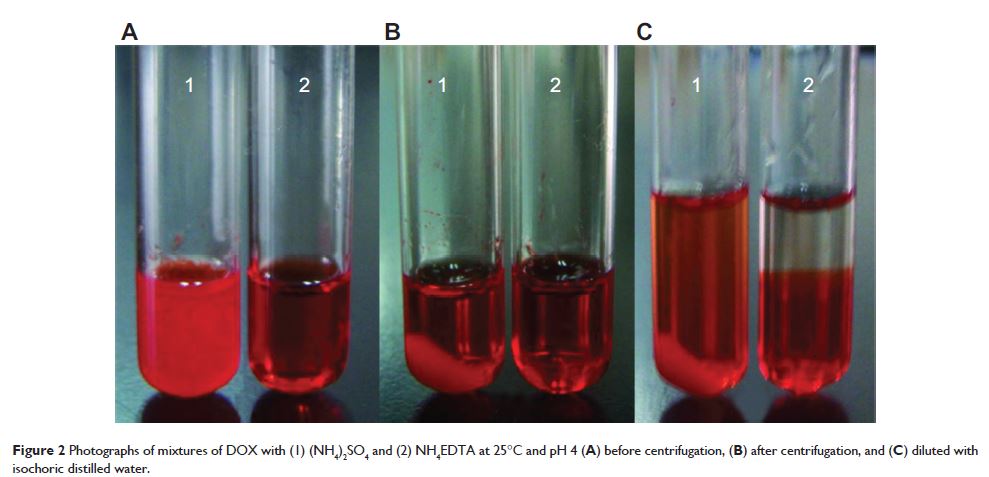9 0 6 7 6
论文已发表
注册即可获取德孚的最新动态
IF 收录期刊
- 2.6 Breast Cancer (Dove Med Press)
- 3.9 Clin Epidemiol
- 3.3 Cancer Manag Res
- 3.9 Infect Drug Resist
- 3.6 Clin Interv Aging
- 4.8 Drug Des Dev Ther
- 2.8 Int J Chronic Obstr
- 8.0 Int J Nanomed
- 2.3 Int J Women's Health
- 3.2 Neuropsych Dis Treat
- 4.0 OncoTargets Ther
- 2.2 Patient Prefer Adher
- 2.8 Ther Clin Risk Manag
- 2.7 J Pain Res
- 3.3 Diabet Metab Synd Ob
- 4.3 Psychol Res Behav Ma
- 3.4 Nat Sci Sleep
- 1.9 Pharmgenomics Pers Med
- 3.5 Risk Manag Healthc Policy
- 4.5 J Inflamm Res
- 2.3 Int J Gen Med
- 4.1 J Hepatocell Carcinoma
- 3.2 J Asthma Allergy
- 2.3 Clin Cosmet Investig Dermatol
- 3.3 J Multidiscip Healthc

已发表论文
EDTA 在药物释放系统中的应用:通过 NH4EDTA 梯度装载多柔比星脂质体
Authors Song YZ, Huang ZJ, Song Y, Tian QJ, Liu XR, She ZN, Jiao J, Lu E, Deng YH
Published Date August 2014 Volume 2014:9(1) Pages 3611—3621
DOI http://dx.doi.org/10.2147/IJN.S64602
Received 21 March 2014, Accepted 13 May 2014, Published 1 August 2014
Abstract: The applications of ethylenediaminetetraacetic acid (EDTA) have been expanded from the treatment of heavy metal poisoning to chelation therapies for atherosclerosis, heart disease, and cancers, in which EDTA reduces morbidity and mortality by chelating toxic metal ions. In this study, EDTA was used in a drug delivery system by adopting an NH4EDTA gradient method to load doxorubicin into liposomes with the goal of increasing therapeutic effects and decreasing drug-related cytotoxicity. The particle size of the optimum NH4EDTA gradient liposomes was 79.4±1.87 nm, and the entrapment efficiency was 95.54%±0.59%. In vitro studies revealed that liposomes prepared using an NH4EDTA gradient possessed long-term stability and delayed drug release. The in vivo studies also showed the superiority of the new doxorubicin formulation. Compared with an equivalent drug dose (5 mg/kg) prepared by (NH4)2SO4 gradient, NH4EDTA gradient liposomes showed no significant differences in tumor inhibition ratio, but cardiotoxicity and liposome-related immune organ damage were lower, and no drug-related deaths were observed. These results show that use of the NH4EDTA gradient method to load doxorubicin into liposomes could significantly reduce drug toxicity without influencing antitumor activity.
Keywords: NH4EDTA, liposome, doxorubicin, ion gradient, antitumor activity, toxicity
Keywords: NH4EDTA, liposome, doxorubicin, ion gradient, antitumor activity, toxicity
